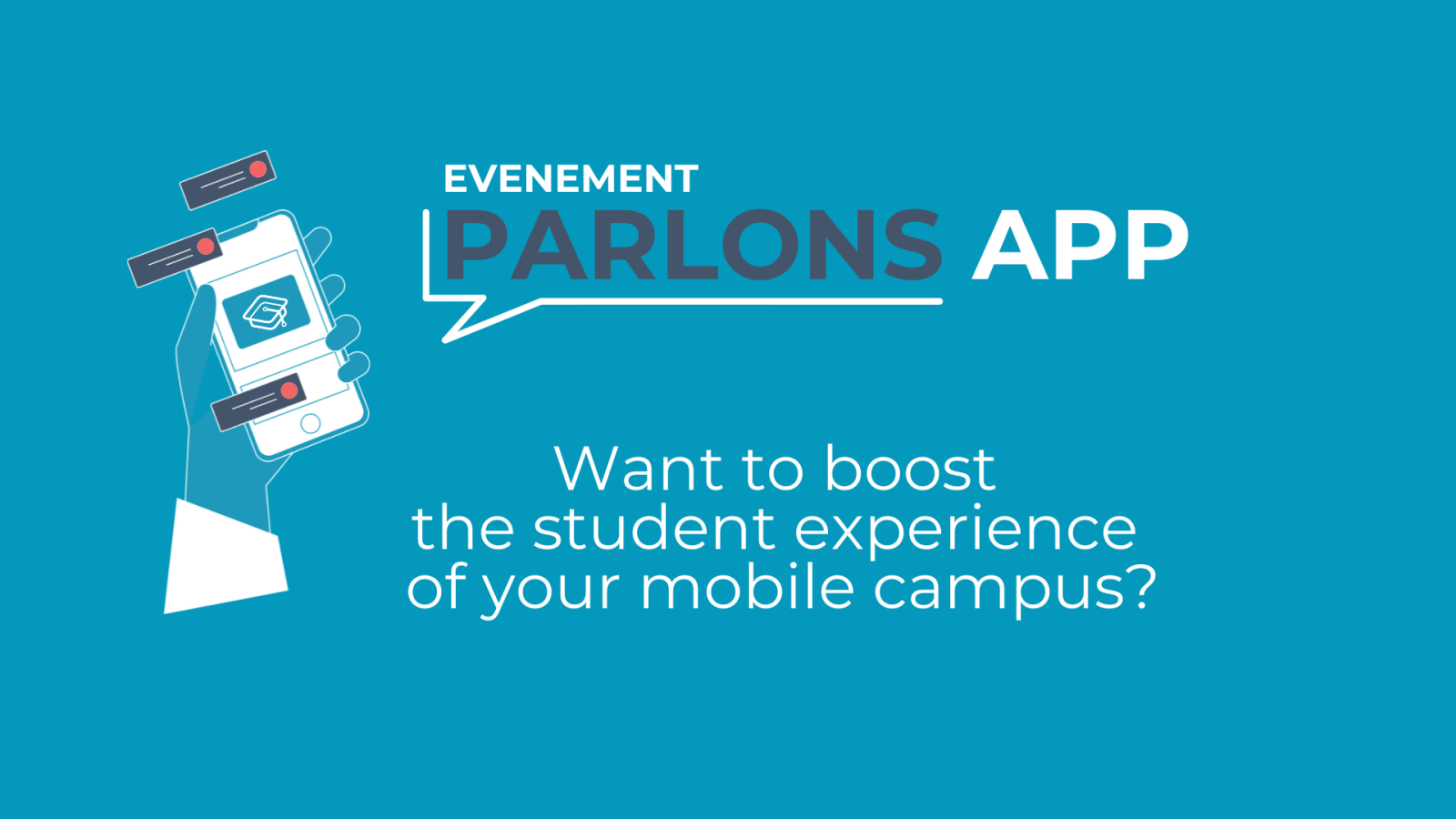English [WEBINAR] Student experience: what role can mobile phones play in the creation of a digital campus ? With Sciences Po
By: Ready Education on 21 juil. 2021 00:00:00English [WEBINAR] Student experience: what role can mobile phones play in the creation of a digital campus ? With Sciences Po
By: Ready Education 21 juil. 2021 00:00:00
On 7 July, AppScho invited Jean-Pierre Berthet, Director of Digital at Sciences Po, to co-present a webinar dedicated to the student experience and the role of mobile apps within campuses.
During this webinar, Jean-Pierre Berthet enlightened us on Sciences Po’s position on the subject and the means implemented to achieve an optimal student experience within the institution!
Discover below the highlights of this session 👇
💬 Our guest, Jean-Pierre Berthet, in a few words
- Deputy Director of Digital Education at Sciences Po
- Expert at Educause, which writes reports on the evolution of the use of technology in education
- Former advisor to the Ministry of Higher Education and Research
🏫 Sciences Po in figures
- 14,000 students
- 49% international students from over 150 countries
- 4500 teachers, of which 220 are permanent teachers only. The rest are professionals.
- Research university ranked 2nd in the QS 2021 ranking (Political Science and International Relations)
- 7 university campuses
- 7 Master’s level schools in Paris
🖥️ The digital experience at Sciences Po
Phygital is the concept at the heart of Sciences Po’s digital strategy. The campus experience is conceived as an interweaving of what can be offered in physical and digital form. This implies rethinking course and work spaces, libraries, etc. so that they meet the school’s ambition.
The student experience is also understood as a global ecosystem. At Sciences Po, several blocks are used to build this digital campus:
- The Google suite
- Wooclap, for interaction with students in lecture halls or online
- A collaborative social network
- Zoom, which has obviously become very popular over the past year
- A mobile application
Two strong commitments guide Sciences Po’s actions in terms of digital experience:
- The chosen solutions must be able to be changed according to strategy.
- The protection of user data is an increasingly important issue. It is in this sense that Sciences Po tends to prioritise French and European solutions.
🤔 How does Sciences Po make its systems evolve over time?
The first task is to identify the needs. The user must be questioned beforehand and future needs must be imagined over several years.
Testing solutions is also essential. You have to negotiate with publishers to see how the solution works with a smaller number of users. When they had to go online in a week at the beginning of the pandemic, it was not done at random. Sciences Po had been testing different solutions for a year. The choices had already been made, which made it possible to react quickly.
The choice of partners is also important: they must be familiar with the higher education and research market.
Sciences Po likes to work with EdTech players. This allows them to discuss the roadmap and even build it together. Clients are not seen as mere customers but rather as partners.
🌐 Some examples of phygital solutions at Sciences Po
For admissions at Sciences Po: the system was totally changed when it was integrated into Parcours Sup. Before, there was an oral exam. Candidates had to come to Paris, which was not always easy for them: the stress of coming to Paris, of having to spend a night in a hotel, of finding themselves in premises they did not know… Now, the orals are organised via web conferences with the juries on Zoom. This is much easier for all the jury members and the students.
Concerning the Open Days: with the health crisis, everything was done virtually. For the presentation of the training programmes, videos were created beforehand in TV studios. These were coupled with webinars to answer students’ questions. Virtual tours in 360 degrees were also organised.
💻 100% digital: a viable scenario?
No according to Jean-Pierre Berthet, it is exhausting to spend the whole day on a computer. Students and teachers need to get together and see each other.
On the other hand, the fact that you can choose how you work is an interesting point to keep. We need to find the right balance between what can be done online and what can be done on campus. This balance must be able to change over time: the system must be flexible.
According to Jean-Pierre Berthet, we have shifted from an emergency pedagogy with the health crisis to a reasoned, targeted, hybrid pedagogy, in which the teacher can choose the format of his or her teaching.
💪 How are Sciences Po’s digital ambitions met?
All the stakeholders are onboarded in order to co-construct solutions and be agile in the way they are deployed.
The new technologies must be consolidated with teachers through training. This year, Sciences Po has 500 registrations for its 18 training courses for teachers. They are all full, and additional sessions have had to be opened to meet the high demand.
Finally, they have a management team that follows up on equipping classrooms, increasing technical infrastructures, etc. They make sure to exchange with them and share the challenges.
📱 Why did Sciences Po launch a mobile app?
Today, 99.7% of people under 30 have a smartphone.
A survey was conducted among students a few years ago at Sciences Po. It appeared that the two media used by students were the mobile phone and the computer. However, they did not use both for the same activities. With their computers, they were revising, working and creating. With their mobile, they collaborated and informed themselves.
It was therefore obvious that information had to be brought yo them on their mobile. This made it possible to alert them in real time, when a lesson was moved for example.
The mobile also makes it possible to rethink teaching methods. At Sciences Po, the idea of offering teachers the possibility of creating podcasts of their courses that can be accessed directly on a mobile phone is under consideration.
🔮 COVID-19, what now?
This period was complicated for the teams, but it was a moment of great change. According to Jean-Pierre Berthet, we are going to have a new stabilisation: not all courses online, but not everything in the old way either. There will be a new point of balance. Face-to-face courses will become more digital and there will be a stronger requirement for hybrid-equipped premises.
💡A tip for other institutions?
- Do not rush into buying a new tool that has just come on the market
- Make an inventory of users’ needs to be sure to meet a demand
- Do a lot of monitoring, see what is coming out on the market
- Exchange with other institutions
- Look at what is being done internationally
Vous souhaitez en savoir plus sur nos solutions mobiles ? Contactez-nous 👇


 Accueil du blog
Accueil du blog .png)
.png)
.png)


